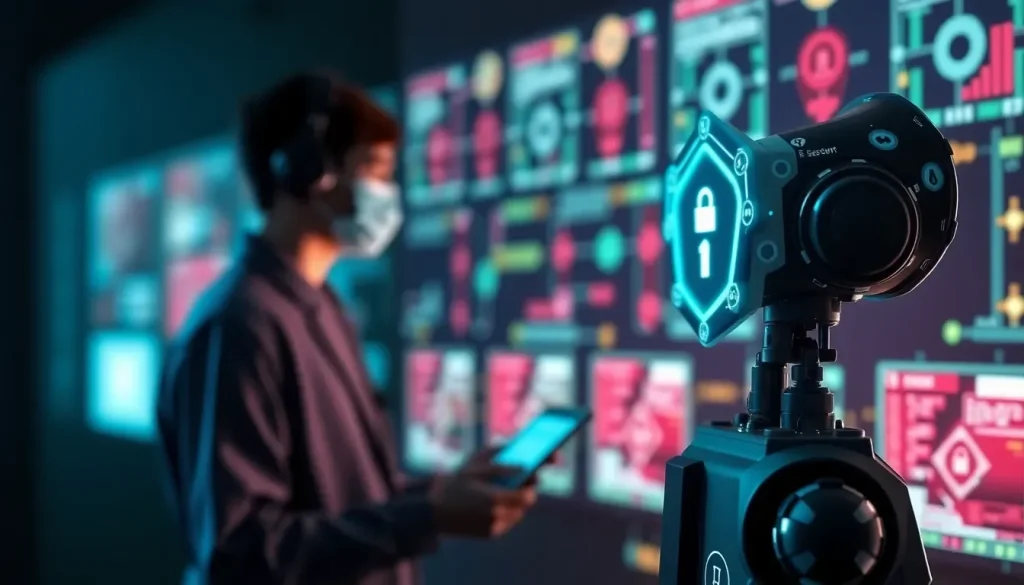AI Enhances Efficiency for Understaffed Security Teams

As cybersecurity threats continue to evolve, organizations are grappling with a significant deficit in skilled professionals. In response, many are turning to artificial intelligence (AI) as a strategic resource to enhance their security capabilities. This growing reliance on AI raises questions about the future of cybersecurity, the challenges faced by security teams, and the importance of investing in talent development.
Recent findings from a global cybersecurity survey reveal that a staggering 97% of 1,850 IT and cybersecurity decision-makers across 29 countries are utilizing or planning to implement AI-driven cybersecurity solutions. This shift comes as organizations face a surge in security incidents, underscoring the critical role AI can play in bridging the skills gap.
AI as a force multiplier for security teams
The integration of AI into cybersecurity operations is a pivotal development in an industry facing a severe talent shortage. According to the 2025 Fortinet Cybersecurity Skills Gap survey conducted by Sapio Research, a remarkable 86% of respondents reported experiencing one or more security breaches in 2024. Alarmingly, nearly one-third of those surveyed indicated they had faced five or more breaches, a sharp increase from earlier years.
This rise in security incidents has resulted in significant financial ramifications. Over half (52%) of organizations reported that breaches cost them more than $1 million, a figure that has remained relatively stable over the past year but reflects an increase from 38% in 2021.
AI is being seen as a powerful tool to bolster organizational defenses against this rising tide of cyber threats. However, it’s essential to acknowledge that while AI presents opportunities, it can also be exploited by malicious actors to enhance their attack strategies. Nearly half of the survey participants expressed concerns that the use of AI by adversaries would escalate cybersecurity attacks.
The critical need for cybersecurity talent investment
Despite the promise of AI, the industry is still grappling with a significant skills gap. Four out of five organizations (80%) cited that AI tools have improved the effectiveness of their IT and security teams. Nevertheless, nearly all respondents understood that AI cannot single-handedly resolve the ongoing talent shortage that currently exceeds 4.7 million cybersecurity professionals globally, as detailed in the 2024 ISC2 Cybersecurity Workforce Study.
“The findings of this survey underscore the urgent need to invest in cybersecurity talent,” stated Carl Windsor, CISO of Fortinet. He emphasized that without addressing the skills gap, organizations will continue to experience increasing breach rates and escalating costs.
Job market dynamics further complicate the situation. As Thomas Vick, a technology hiring expert at Robert Half, noted, the competition for skilled cybersecurity professionals is intense. Employers are compelled to offer higher salaries and attractive benefits to attract and retain top talent.
Challenges in AI adoption due to skills shortages
While organizations are eager to implement AI solutions, nearly half (48%) acknowledge that a primary obstacle to integrating AI into cybersecurity is the scarcity of personnel with adequate AI expertise. Tim Freestone, chief strategy officer at Kiteworks, pointed out that the skills shortage creates a paradox that limits AI's potential in this domain.
Effective implementation of AI tools requires a dual skill set that combines knowledge of AI system operations and skills to defend against AI-powered attacks. Unfortunately, these competencies are in even shorter supply than traditional cybersecurity expertise.
Organizations risk deploying AI systems that may not meet their defensive capabilities without trained professionals who can configure these tools correctly and interpret their outputs accurately. This situation highlights a widening gap between technological advancements and organizational readiness.
Broadening AI skill sets
AI skills encompass a wide range of competencies. Diana Kelley, CISO at Noma Security, indicated that traditional AI skills, such as data science and machine learning engineering, remain in high demand. Furthermore, emerging roles like prompt engineering are increasingly relevant across various teams, including security operations and marketing.
- Data science and machine learning engineering
- Prompt engineering for AI applications
- Cybersecurity analysis to defend against AI attacks
- AI lifecycle management
- Integration of AI tools into existing security frameworks
The need for investment in training and development
The survey advocates for a more robust investment in cybersecurity training and development programs. Alarmingly, the willingness to pay for certifications has decreased from 89% to 73% this year, raising concerns about the long-term implications for workforce readiness. Organizations are advised to reassess this trend as part of their overall risk management strategy.
Lisa Simon, chief economist at Revelio Labs, explained that while certifications can verify cybersecurity skills, they have limitations. Many skilled professionals lack formal credentials, which could lead to exclusion in hiring processes.
To create a more robust workforce, organizations must invest in:
- Internal training programs
- Building diverse talent pipelines
- Providing mentorship opportunities
- Enhancing job descriptions to include non-traditional qualifications
Ultimately, cultivating a skilled workforce is essential for managing cyber risks effectively in an increasingly complex threat landscape.
Conclusion: The evolving landscape of cybersecurity
The cybersecurity landscape is shifting, driven by technological advancements and a pressing need for skilled professionals. Organizations that effectively harness AI's potential while investing in their workforce will be better positioned to navigate the challenges ahead. As the industry evolves, a commitment to continuous learning and adaptation will be vital in safeguarding digital assets and maintaining robust security postures.
For further insights into the intersection of AI and cybersecurity, check out this video exploring the future of AI in the workplace:




Leave a Reply